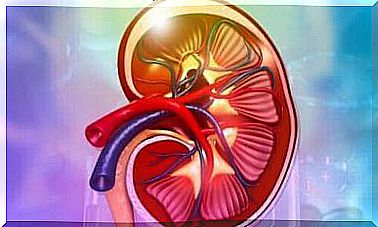Symptoms Of Appendicitis
Appendicitis is not to be trifled with, it can be life-threatening!

Signs of appendicitis shouldn’t be ignored because if left untreated they can be life threatening and even fatal.
You should therefore know the symptoms of appendicitis so that you can recognize them in good time and organize the necessary medical help.
Appendicitis can be fatal
In appendicitis, the so-called appendix of the intestine, the appendix vermiformis, becomes inflamed is called.
If the appendicitis remains untreated and progresses, the inflamed part can burst open and the intestinal contents spill into your abdominal cavity.
This is called the ruptured appendix and is a more than serious condition that can cause appendicitis to spread throughout the abdomen. This condition is life-threatening!
Learn to identify the symptoms of appendicitis so that you can get help if you suspect it.
If an operation is necessary, it only takes about 20 minutes and, thanks to today’s modern surgical technique, only a small incision is required, which usually heals almost invisibly to form a small scar.
If you have the following symptoms, you should be extremely vigilant and have the symptoms clarified whether appendicitis could be behind it:

stomach pain

Typical pain associated with appendicitis manifests itself in the right lower abdomen, but not always.
In the early stages, you may also feel abdominal pain in the area of the belly button or in the stomach area under the costal arch.
Notice whether the abdominal pain changes and moves towards the right lower abdomen. The appendix is located on the right lower abdomen approximately at the height of the waistband.
Your abdominal pain may be less severe when you are at rest than when you are running, coughing, laughing, or sneezing.
This is another indicator of possible appendicitis that should not be ignored. This is one of the biggest differences between “normal” abdominal pain and those with inflamed appendix.
Hard stomach
The abdominal pain is often accompanied by hardening of the abdominal wall. The pain becomes more violent and stabbing as the appendicitis progresses, and the hardening of the abdominal wall also increases.
Your stomach will feel increasingly “hard as a board”. This is always a clear sign that something is wrong!

nausea

Not always, but not that seldom, in addition to a hard stomach and intensifying abdominal pain, there are other complaints, including nausea.
It may be that the nausea is so severe that it leads to nausea or vomiting.
fever
Inflammation usually leads to an increase in body temperature. The bigger, worse, and more intense the inflammation, the higher the fever.
It may be that you just have an “elevated temperature”, but as appendicitis progresses, the temperature on the clinical thermometer will most likely continue to climb.

constipation

If the appendix is inflamed, the inflammation disrupts the digestive process.
Your bowel movements may be so impaired, slowed or stopped that you become constipated.
The critical thing about the situation: the stomach ache is often misinterpreted and blamed on the constipation!
Note: Constipation very rarely causes sharp pain and never pain that gets worse with movement.
diarrhea
If digestion is disturbed by the inflammation, this can also turn into the opposite of constipation and lead to diarrhea.
The diarrhea is usually accompanied by pain in the right lower abdomen. This is also the difference to “normal” diarrhea, in which the abdominal cramps tend to occur in the entire lower abdomen and not just in the right area.
Loss of appetite
Now that you’ve read a number of the symptoms, you won’t be surprised that the last symptom mentioned is that of anorexia.
Children in particular lose their appetite when appendicitis develops or already exists. Unfortunately, a large number of symptoms can also indicate other illnesses or ailments, so that you should always consult a doctor if you have the slightest suspicion.









